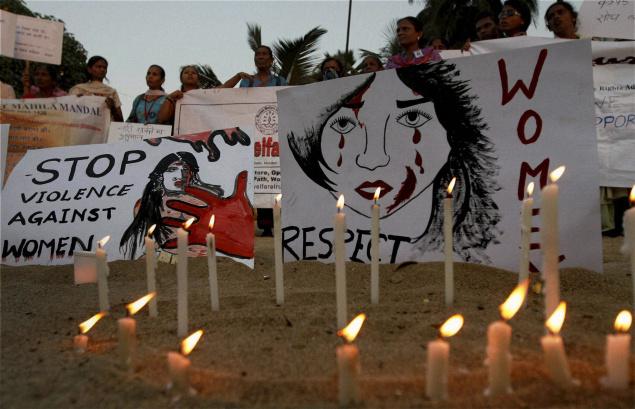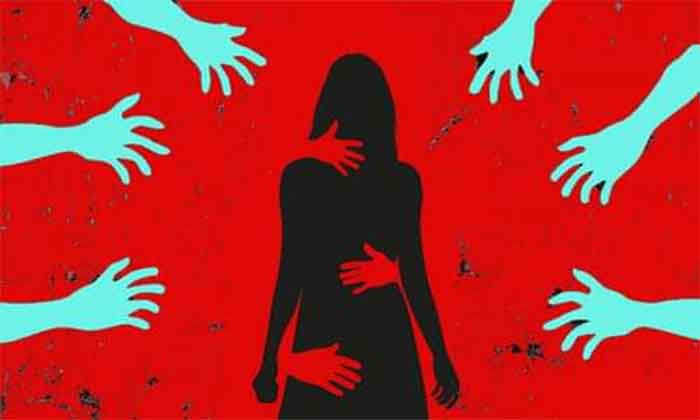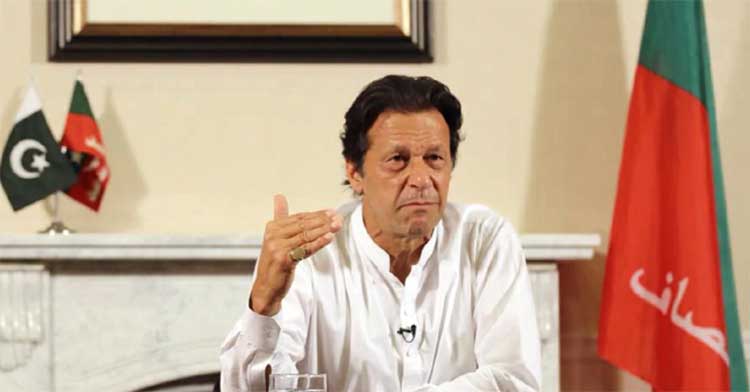Delhi, the national capital of India, has witnessed another gory incident involving the rape-murder of a minor. This time, a 16-year-old was allegedly raped, strangled, and then set on fire in her own house in East Delhi. The police reportedly tried to pass off the crime as suicide, filing a case of rape and murder only after the autopsy proved them wrong.
The police, incidentally, had motive in trying bury the case. The girl had complained to them about her stalkers, who had been harassing her, and it was their inaction that led to her murder. The police have now easily apprehended the suspects that had been on their radar for months; alas they had to wait till the girl was murdered to act against the suspects.
The rape-murder comes hot on the heels of another – that of a 14-year-old Dalit girl – who died on 24 July 2016. A daughter to parents who work as sweepers in a hospital, she had seen it all in a small life span. In December 2015, someone named Shivshankar, “allegedly” raped her; and her family had dared to seek justice despite knowing the odds.
They approached the police and got a First Information Report filed under Sections 363 and 376 of the Indian Penal Code and 4/6 of Protection of Children from Sexual Offences Act, 2012, in Burari Police Station on 2 December 2015. Inexplicably, the police did not press the Scheduled Castes and Scheduled Tribes (Preventions of Atrocities) Act in this case, despite the girl being from the Dalit community.
That said, perhaps this is all rather routine in a country with a deadly mix of no witness protection mechanism, both inefficient and corrupt policing, and impunity that criminals with means enjoy. Not imposing the Act ensured that the accused was out on bail soon, and he promptly started threatening the family to withdraw the case.
The family did not relent, however, and complained to the police about the threats on 15 May 2016. The police, however, did not take any action. Emboldened by this, the accused allegedly abducted the girl on 19 May 2016, just a couple of days before the first hearing in the rape case was scheduled.
The girl was recovered on the night of May 26-27, profusely bleeding from the head; she narrated her ordeal to the police and parents. She told them that the accused had abducted her and kept her in captivity, repeatedly having her gang-raped, and even forced her to drink an acidic, corrosive substance. This substance led to severe damage to her internal organs. The police, still unfazed, reportedly sent the girl to a Nari Niketan (shelter home). They did this instead of sending her to a hospital, where she could avail immediate emergency medical help, and instead of filing a medico legal case, as mandated.
She was rushed to a hospital only after a couple of days later, when her condition deteriorated rapidly. Her parents took her there; subsequently the Delhi Commission of Women (DCW) learned of the incident, and also intervened. In her statement to the magistrate, the girl narrated how the Delhi police forced her to change her statement. Despite all the failings of the police, and what appears to be in spite, after the girl’s death, the police booked the Chief of the DCW for disclosing the girl’s identity. The police have had the gall to do this despite their inaction being a primary factor in the murder, and even as all accused barring one still roam free!
One can easily guess the status of safety of women in the rest of India, if this is the predicament of those living in the capital city, which is under constant media attention. One may also easily guess how the police in the hinterlands respond to distress calls of women, if their cohorts in national capital are responding in this fashion.
The criminal apathy of the police forces across India in terms of women’s safety was exposed further hours before the 14-year-old was raped and burned in Delhi, when criminals abducted a family on a highway in Uttar Pradesh. They robbed the family and then gang-raped the mother and her teenage daughter for three hours just 2 kilometers away from a police post in Bulandshahr. To add insult to injury, the police failed to respond to the family’s distress calls on 100, the universal police helpline number in India.
One may explain away this sorry state of affairs with hundreds of tried and tested excuses that the State and other stakeholders keep offering. The political parties in power often bring out crime statistics and show how they are performing “better” than other states. The ones in opposition, on the other hand, slam them hard without explaining how the same situation prevails in the states ruled by them. A few heads in law enforcement agencies roll, from time to time, with some officers transferred and some suspended.
Further, some civil society activists “outrage” over some such select cases, though this outrage often depends on media coverage of the issue. The rape-murder of the Dalit girl in Delhi was not covered that well by media, so there was not much of an outrage. Yet another similar repeat gang-rape of a Dalit girl was also largely ignored by the media, so the ensuing outrage died down soon as well.
The Bulandshahr case, however, happened to take place in a poll bound state ruled by an opposition party, so the outrage sustains, at least for now, with angered media debates, politicians’ bites, and everything that comes in such a package.
The real questions, however, get lost in both cases- the cacophony of such faux outrages and in the eerie absence of any outrage in others. Why must a victim of crime, any crime for that reason, need an outrage to get redress in a republic that claims to adhere to the rule of law? A rule of law jurisdiction would treat violent crimes against its citizens as crimes against the society as a whole. It obligates the State to prosecute the culprits and get redress to victims. A State that fails to do that can only be a lawless state.
Also, how can police officers in a rule of law jurisdiction, clearly guilty of serious dereliction of duty, as is evident in all three cases discussed here, escape scot-free? Suspensions (often involving restoration with full salary) and/or transfers are not punishments. Furthermore, what emboldens them to ignore the complaints of the victims coming from marginalized section of society? Is it not the rampaging rule of impunity devoid of fixed command responsibilities that makes them behave the way they do?
History bears witness that many of the changes are not brought from the top; societies get what they proactively seek and deserve. India has shown its penchant to seek everything under the sun but justice, even if the society is under the influence of divisive forces with vested interests of their own.
India, for instance, has demanded cow protection and is getting that. No police officer in most Indian states can ignore the distress call of a cow vigilante, not unless he is okay with rioting mobs taking over his area.
Indians have never demanded justice institution reforms with any seriousness. Whenever they have, they have gotten a step close to justice. Remember the protests across country against atrocities on Dalits, which ushered in the SC & ST (POA) Act and helped in the struggle against caste-based atrocities.
One can also remember the protests after the infamous 16 December gang-rape-murder in Delhi. In this case, the protests were fierce but they did not sustain, so all they achieved was a few cosmetic changes, some even regressive, in terms of statutes, and nothing else.
There is no one in sight seeking justice institutions reforms to ensure safety of women in India, and so there is no pressure on the political and justice institutions to offer any such safety. Women should take note and ensure their own safety; the Republic is too busy saving cows, as demanded by a section of its citizens.
Samar is Programme Coordinator – Right to Food Programme Asian Legal Resource Centre / Asian Human Rights Commission, Hong Kong














































